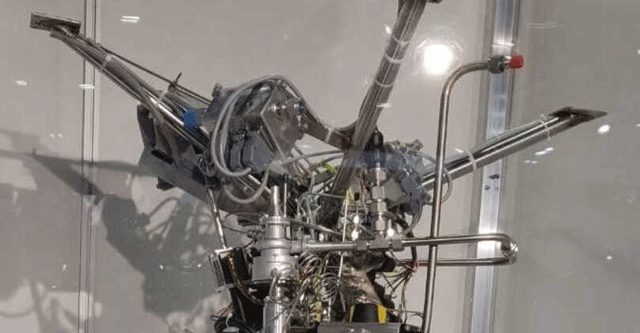
Homegrown Agnikul Cosmos secures its first patent for 3D printed rocket engine


Agnikul Cosmos, one of India's private space startups, has secured its first patent for the design and manufacturing of its 3D printed rocket engine. The patent, which has been offered to the company under the Government of India's patent database, comes after the company opened doors to its first factory to 3D print rocket engines at scale.
The patent has been rewarded to the company for its Agnilet rocket engine, which will power the company's Agnibaan rocket that is scheduled to launch later this year. In July, Srinath Ravichandran, chief executive of Agnikul Cosmos, told Mint that the company will require eight engines for each of its rockets — which are billed as ultra-lightweight satellite launch vehicles.
Agnikul's factory, opened on July 13, presently has the capacity to make two rocket engines every week — which adds up to manufacturing the requisite engines for one rocket within a month. Such manufacturing capacity is expected to add scale to Agnikul's operations, once its first demonstrator launch takes place later this year.

To be sure, Agnikul is not the only Indian space startup using 3D printing for its parts and components. Skyroot Aerospace, which recently raised $50.5 million in the largest single funding round for an Indian space startup, also uses 3D printing for its rocket engines, which will power the company's Vikram satellite launch vehicles.
Like Agnikul, Skyroot is also expected to launch its first rocket as part of a demonstrator mission later this year — before flying commercial clients to space next year.
Such missions, along with patents for their technologies, could help India's young space sector to gain the tag of being space proven — thereby gaining the ability to attract international investors and clientele to host launches. Global space companies, such as the US-based SpaceX and Rocket Lab, have achieved consistency and scale of launching satellites with their rockets — a move that India's space startups will look to emulate.

Last month, Anil Prakash, director-general of industry body Satellite Industry Association of India, told Mint that over the next five years, private companies and academic bodies around the world could combine to launch nearly 60,000 satellites. This would create a large market for private space companies, and India's liberalised space policy could help homegrown companies get a larger share of the global space pie.
At present, India is estimated to hold a market share of around 2% in terms of commercial space operations — which too is due to the operations of India's central space agency, the Indian Space Research Organisation (ISRO).
Industry stakeholders have previously said that technologies like 3D printing can help space companies scale their products efficiently and reduce the chance of errors in a sensitive sector like space.

